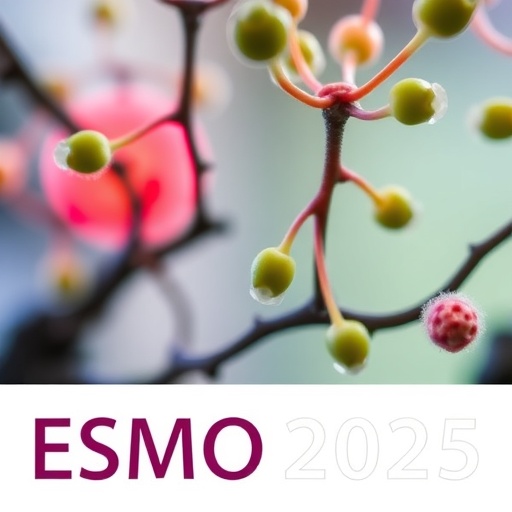In a landmark advancement for the treatment of rare neuroendocrine tumors, researchers have reported groundbreaking results with the oral HIF-2α inhibitor belzutifan in patients suffering from advanced pheochromocytoma and paraganglioma (PPGL). These tumors, arising predominantly from the adrenal glands or extra-adrenal paraganglia, have posed substantial clinical challenges due to their rarity, aggressive behavior, and limited therapeutic options. The recent multicenter Phase II clinical trial led by the University of Texas MD Anderson Cancer Center marks a pivotal moment, demonstrating durable tumor regression and symptomatic improvements without the need for invasive surgery.
Pheochromocytomas and paragangliomas represent a subgroup of neuroendocrine neoplasms characterized by their capacity to secrete excess catecholamines, which frequently result in refractory hypertension and other debilitating symptoms. Historically, therapeutic approaches have been constrained primarily to surgical excision, an option often unfeasible in the context of metastatic, unresectable, or locally advanced disease. The absence of approved systemic treatments until now underscored a significant unmet medical need for this vulnerable patient population.
Central to the pathophysiology of PPGL is the aberrant activation of hypoxia-inducible factor 2 alpha (HIF-2α), a transcription factor that modulates cellular adaptation to oxygen fluctuations. In healthy physiology, HIF-2α is tightly regulated; however, oncogenic mutations and altered metabolic cues in PPGL drive its constitutive activation, promoting angiogenesis, metabolic reprogramming, and proliferative signaling pathways instrumental for tumor growth and dissemination.
Belzutifan, an innovative small molecule inhibitor targeting HIF-2α, originally garnered FDA approval based on its efficacy in cancers such as von Hippel-Lindau disease-associated tumors and advanced renal cell carcinoma, both of which share the genetic and molecular underpinnings involving HIF-2α dysregulation. The application of this agent in PPGL thus represents a rational extension of its mechanism of action to an equally underserved malignancy.
The LITESPARK-015 trial enrolled 72 patients exhibiting advanced, metastatic, or inoperable PPGL who had exhausted all other standard treatments. The intervention with belzutifan elicited an objective response rate of 26%, a response magnitude considered substantial in this oncologic context. Beyond tumor shrinkage, the median duration of response exceeded 20 months, indicating not only prompt antitumor activity but also prolonged disease control, a crucial factor for improving patient quality of life.
Remarkably, the therapeutic benefits extended beyond mere tumor reduction. Approximately 32% of patients managing hypertension with pharmacological agents were able to decrease their antihypertensive therapy by at least 50% for a minimum of six months. This finding implies that belzutifan’s modulation of tumor biology simultaneously mitigates the hormonal overproduction that drives clinical symptoms, underscoring its role in symptom control alongside tumor management.
From a safety perspective, belzutifan demonstrated a tolerable profile in the PPGL cohort, with manageable adverse effects aligning with prior experience in other indications. The oral administration route confers added convenience and patient compliance potential compared to intravenous therapies, a particularly advantageous feature for chronic treatments in a rare disease setting where frequent hospital visits can impose significant burdens.
The FDA’s approval of belzutifan in May 2025 for the treatment of both adult and pediatric patients aged 12 years and older with advanced, unresectable, or metastatic PPGL marks a milestone. It establishes the drug as the first and only systemic therapy authorized for this indication, effectively setting a new standard of care for a disease previously lacking effective medical treatment options beyond surgery.
This therapeutic breakthrough also exemplifies the broader paradigm shift towards targeting transcription factors, historically deemed ‘undruggable,’ with precise molecular inhibitors. The success of belzutifan in PPGL not only offers hope for this small patient population but signals potential applicability of HIF-2α inhibitors in other hypoxia-driven cancers, broadening the horizons of oncologic precision medicine.
The trial’s lead investigator, Dr. Camilo Jimenez, emphasized that these findings are particularly significant given the prior absence of standard-of-care systemic therapies in progressive PPGL. He highlighted that belzutifan’s durable disease stabilization and symptom improvement provide a critical therapeutic avenue, supported by a robust scientific rationale linking HIF-2α to tumor progression in this biological context.
Additionally, this advancement underscores the importance of continued research and clinical trials focusing on rare cancers, where innovation can rapidly shift treatment landscapes and drastically improve patient outcomes. The multidisciplinary collaboration across oncologic specialties, molecular biology, and pharmaceutical development was essential to translating these insights into clinical reality.
Looking ahead, ongoing studies and long-term follow-up will be crucial to elucidate the full scope of belzutifan’s efficacy and safety, as well as to explore combination strategies that may further enhance therapeutic benefits. The integration of biomarker-driven approaches to identify patients most likely to respond remains an area of active investigation.
In sum, belzutifan’s successful application in PPGL represents a transformative moment in rare cancer therapeutics. By targeting a fundamental driver of tumor biology through an accessible oral agent, this approach heralds a new era in the management of neuroendocrine tumors, with the promise of improved survival, reduced symptom burden, and enhanced quality of life for patients afflicted with these challenging malignancies.
Subject of Research: Treatment of advanced pheochromocytoma and paraganglioma using the HIF-2α inhibitor belzutifan.
Article Title: Not explicitly provided in the source content.
News Publication Date: October 18, 2025.
Web References:
- University of Texas MD Anderson Cancer Center
- Camilo Jimenez, M.D. profile
- Department of Endocrine Neoplasia and Hormonal Disorders
- New England Journal of Medicine – Article
- European Society for Medical Oncology (ESMO) Congress 2025 – Abstract 1705O
References:
- Jimenez, C. et al. New England Journal of Medicine, 2025. DOI: 10.1056/NEJMoa2504964
Keywords:
Endocrine tumors, Pheochromocytoma, Paraganglioma, HIF-2α inhibition, Belzutifan, Neuroendocrine cancers, Rare cancers, Targeted therapy, Tumor shrinkage, Symptom management




